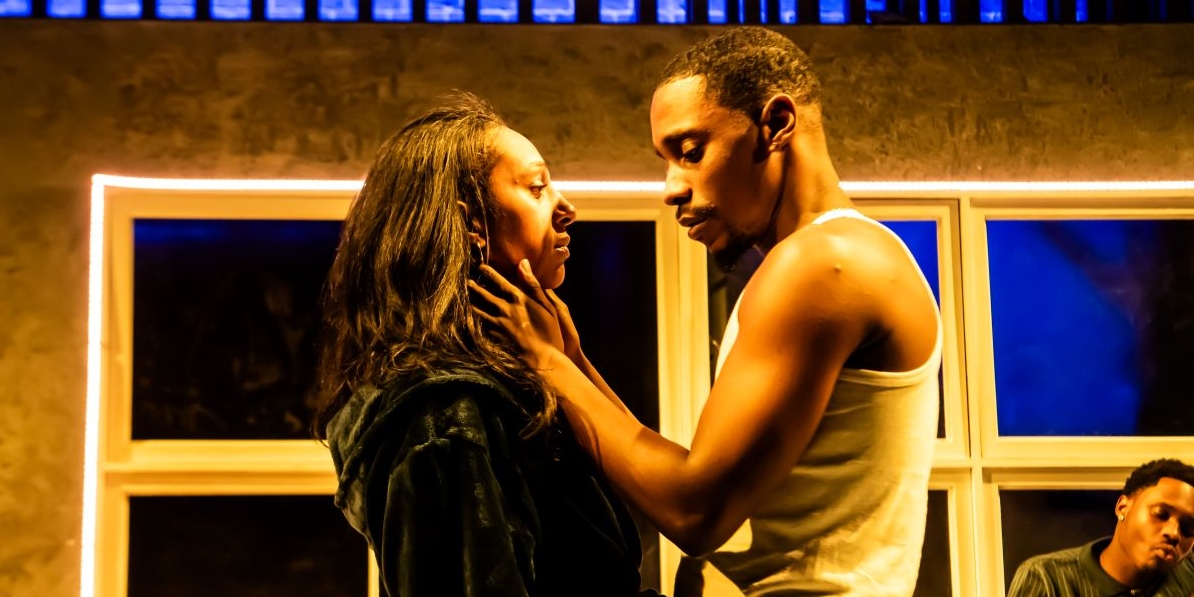I have written here before of the remarkable and under-appreciated work done by Inter-Mission Youth Theatre, and their latest production, an adaptation of ‘The Taming of the Shrew’, is further proof of the scope and validity of their training model. They offer a ten-month, all-encompassing training programme for disadvantaged youngsters focused on drama and personal development which since 2008 has produced 250 graduates, many of whom have gone on to professional careers, whether directly focused on theatre and film or in setting up businesses and working to enrich their communities. To celebrate fifteen years two special production are on offer to the public, and this one ‘Taming Who?’ is of such quality it deserves a much longer run in a Central London theatre.
Darren Raymond has a rare set of gifts as a writer and director. He can take a Shakespeare play, extract its essential message and core text, and then reshape the material with fresh dialogue drawn from contemporary London speech that immediately makes the old language flicker and flame out into new creative life. This provides a way into the themes, characters, and situations that is then accessible and attractive to new performers and audiences who in ordinary circumstances would probably not go near a Shakespeare play. He makes you think about the plays in new creative ways that are just as ‘authentic’ as any painstakingly historical form of authenticity, probably more so.
What is even more impressive is that his team are taking on a play that in recent years has become increasingly difficult to perform because audiences no longer find its perceived misogyny acceptable. Despite intricate attempts to mitigate the problems through jumbling up the genders of the casting, I have not seen a convincing recent account – until this one! Darren’s solution is to dissolve the difficulties by introducing some fresh characters which of course also enlarges the number of roles available to be cast. He has also redistributed some of the minor roles so that there is a much better gender-balance between the women and the men, and much more scope for sassy push-back by the women.
We are essentially in a modern university setting, where most of the men want to make out with Kate’s sister, Bianca, but where the catch (and plot-device) is that her shrewish elder sister must be paired off first. Petruchio’s dilemma now is that if he does not find a wife then his mother will compel him and and his brother to return to Africa. So he is up for the challenge.
The large studio at the Arcola can be an awkward space for both audiences and actors. But here the two directors Stevie Basaula & Morenike Onajobi get the best out of the split levels, while leaving plenty of space for dynamic movement in the central performance space thanks to some clever retractable units in the set that easily convert into cafe spaces, a dance floor or hotel bedroom. Despite the confined spaces there is an easy flow about this production that makes it appear to slip past in no time at all.
There is a wonderfully improvisatory feel to the acting which is full of visual humour and slapstick and creative dance as much as verbal jousting. It is an ensemble piece and there are no weak links in the cast. It is hardly fair to single out particular performances, but both the leads are all remarkable for the way they reinvent over-familiar roles and avoid stereotypes. Sara Mokonen’s determination, as Kate, to stand out against gender-stereotyping and the male gaze seems eminently reasonable, and Keon Martial-Philip finds a swagger and endearing charm about Petruchio that belies the crudity of many of the scenarios over which he presides.
As usual with this company, there was a Q&A afterwards in which the cast talked about the performance process with engaging articulacy and passion, and reminded us of what might be possible were they able to locate a permanent home for the company. The quality of the product is so high, one has to hope that someone with influence in the world of arts funding will take proper notice.

